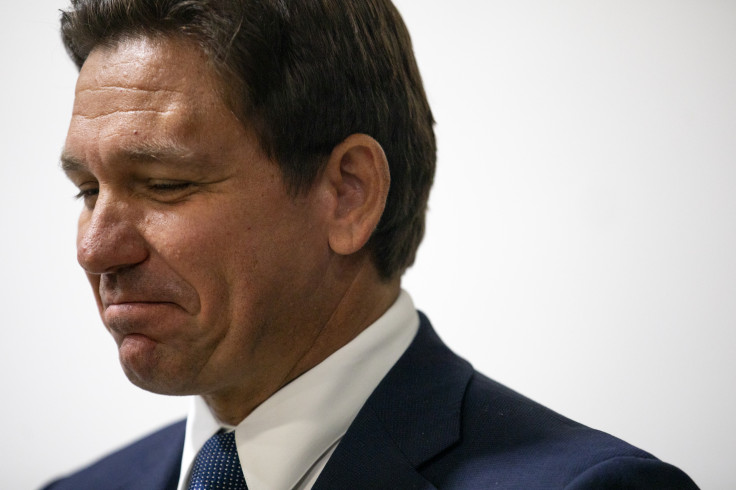
Florida Governor Ron DeSantis announced on Monday that he will call for a special session of the state Legislature to not only ensure all local governments assist the upcoming Trump administration with immigration policies but also provide additional funding to do so effectively:
"State and local officials in Florida must help the Trump administration enforce our nation's immigration laws and we're going to need in order to do that effectively legislation to impose additional duties on local officials and provide funding for those local officials. There also needs to be measures to hold people accountable who are violating our anti-sanctuary policies. Florida need to make sure that we don't have any lingering incentives for people to come into our state illegally. Therefore I'm going to call the legislation into special session starting the week of January 27th"
#BREAKING: Gov. Ron DeSantis announces special session of the legislature to ensure all local governments help Trump's deportations
— Florida’s Voice (@FLVoiceNews) January 13, 2025
"We are going to need - in order to do that - legislation to impose additional duties, and provide funding for those local officials."
"I'm gonna… pic.twitter.com/d3KbEHdrnv
DeSantis also referred to the issue of undocumented immigrants as one "that has been festering in this country for many, many decades," adding that he thinks the upcoming four years "is the time to get it right once and for all."
"We anticipate executive orders to be issued immediately after the swearing in and the inaugural address," said DeSantis, echoing reports that surface during the weekend which reported at least 100 executive orders during Trump's first days in office. "We're going to have time to process and make sure we're doing what we need to do. We need to act and we need to act quickly. We don't have time to waste."
About a million Floridians could be removed from the United States if Trump implements his promised mass deportation plan, according to a recent report. Conducted by the American Immigration Council (AIC), the study claims the measure could affect about one in every 20 residents of Florida, a state with a notably high proportion of undocumented immigrants compared to the national average.
Florida's undocumented population accounts for about 5% of the states' total residents, compared to 3.3% nationwide, as reported by the immigration advocacy group. In fact, the state's existing anti-immigration law, Senate Bill 1718 (SB 1718), has already led to an exodus of undocumented workers and noticeable labor shortages.
SB 1718, which went into effect one year ago, requires private companies with 25 or more employees to use the federal E-Verify system to check new hires' legal status, prompting many workers without documentation to leave.
Within months of the law's enactment, businesses across various sectors, including agriculture, construction, hospitality, and food service, began reporting severe worker shortages. Construction projects stalled, fruit was left to rot in fields, and restaurants and hotels laid off staff while putting up "Help Wanted" signs. Rental units stood empty, and businesses struggled to keep customers. Even Walt Disney World faced challenges finding cast members. Some state representatives who had initially backed the legislation publicly urged immigrants not to leave.
The Florida Policy Institute projected that SB 1718 could cost the state's economy $12.6 billion in its first year. If Florida's population were to shrink by around 5% under this plan, the significant undocumented immigrants make to the economy as taxpayers and consumers would take a new hit. In 2022 alone, undocumented immigrants contributed about $70 billion in local, state, and federal taxes. Removing them, the report says, would deliver "a major shock to the U.S. labor force" and further strain industries already facing labor shortages.
© 2025 Latin Times. All rights reserved. Do not reproduce without permission.





